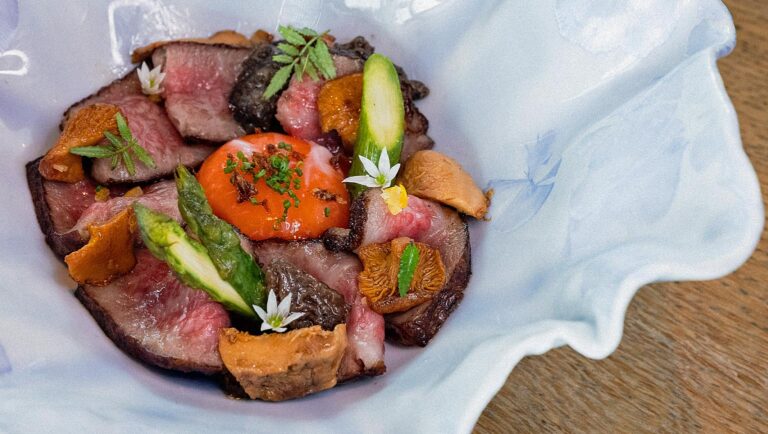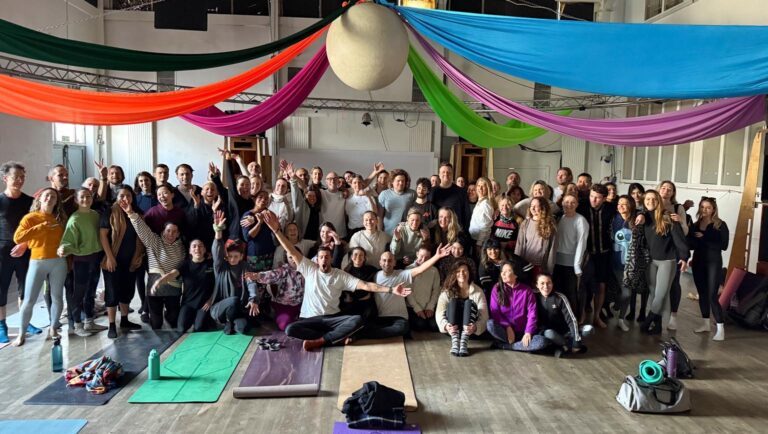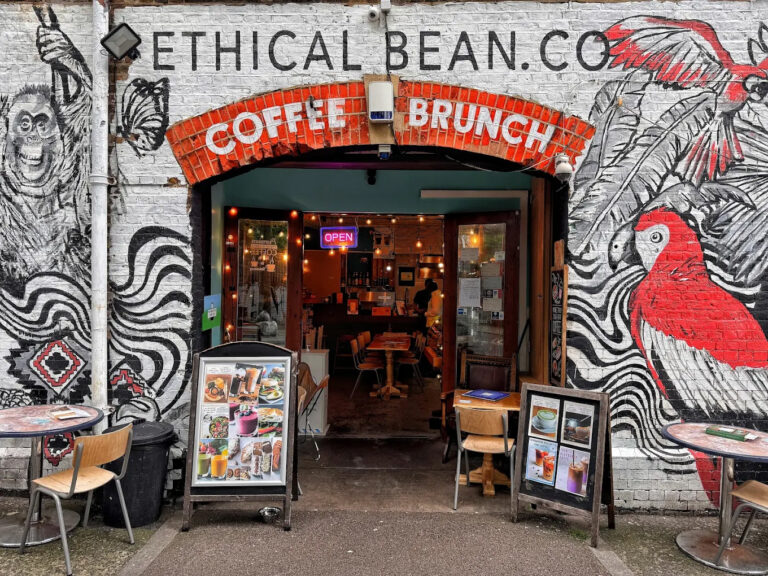
Review: Kokin – tuna meets fire at The Stratford
The new sushi restaurant now at the iconic skyscraper’s 7th floor and terrace
For some years, scaffolding boards and other ‘waste’ materials from the Olympic Park were used for mezzanine-building, warehouse modifications and much more in Hackney Wick. Almost a decade ago, Tom Fletcher created his Rejuce factory in a Fish Island warehouse, collecting discarded fruit from a wholesale market. Another warehouse-dweller I knew fantasised about closed-circuit hydroponic farms before heading to Kenya to build cooking stoves fuelled by their owners’ toilet waste. The Wick was not only a playground but a testing ground too.
This year, flooding has alarmed Londoners while the world has looked with dismay at the latest report by the UN International Panel on Climate Change. For years I’ve showcased the social enterprise and sustainability ecosystem in Dalston, but Hackney Wick has grown its own cluster of businesses seeking to do things better. On the railway embankment, passing container trains invite us to ponder the scale of the resources we’re using and the problem we face.
Underneath those same tracks at Grow, Extinction Rebellion met to make plans. But this arts hub is also trying to inspire the business response. Between freight trains, Pete Bennett explains: “Grow was founded in 2014 as part of an ecosystem of studios and is an experiment in ethical and sustainable business. That ethos informs our decision making, from using local and independent products wherever possible, to being powered by Ecotricity and paying all our staff the London Living Wage.” But it’s not just about the things sourced on site, like the chairs made from waste tyres and Kompassion Kombucha; free or low-cost cultural events remind us that community needs to be sustainable too.

Another Wick veteran is Neil McDonald of Stour Space, the Community Development Trust and now Hackney Wick Underground amongst other projects. His latest baby is a civic learning environment with studios, maker space, arts and food. There is also a classroom to kickstart ethical business for young people. Exploring ideas like land trusts as a practical way to mitigate the most voracious forms of redevelopment, he’s mastering in Design for Cultural Commons. The Underground runs not on consensus, he says, but by consent: “It’s about participation and redistribution of profits for regenerative business practice, a systemic shift in governance that builds inclusivity and empowerment into its core mission and activities.”
Trust is important and customers need to do their research. One entrepreneur told me that they see greenwashing all the time. But even well-meaning businesses might unknowingly have their carefully collected recycling end up in landfill, or their compostable plates incinerated. Joined-up thinking from businesses and councils is required, along with due diligence from customers.
Several markets now vie for the ethical pound, including one attached to Silo restaurant in the White Building. Chef and writer Douglas McMaster shared his motivation for this joint project with Crate: “I walk down the canal here and we’re suffocated by waste. 40% of food is wasted too – an obscene amount of resources. It’s catastrophic for nature so we’re trying to mitigate that. We’re a restaurant but you can apply these ideas to anything.”
There is no danger of lip service here: “It’s a system with no loose ends and we’ve really gone into detail. Produce arrives in reusable vessels and it’s from regenerative suppliers. They’re not just sustaining, they’re actively putting back what’s been lost and I’ve been to every single one. Afterwards, food waste and natural materials are composted. Glass is the exception – so now we’re looking at how to make the tools we need from it.”

Nearby, Claire Nicolas of Pedal & Co plans to upcycle old hi-vis clothing for a range of conspicuous but stylish cyclewear manufactured in Hackney. The recent successful bid for the GLA’s High Streets For All Challenge by the (Hackney Wick and Fish Island) Community Development Trust recognises this increasing entrepreneurship. Some are already planning for the post-AI landscape, anticipating the next shift.
Forward-thinkers Echo (Economy of Hours) have taken money out of the equation, pulling in a socially-minded crowd with their timebanking and skillsharing network. Director Sarah Henderson is also part of Global Challenge Local Solutions, a triad of young women in business who ran a meeting at Grow this year addressing issues like plastics, waste, Net-Zero and inclusivity. The meeting was public, as their website points out: “You cannot tackle a systemic problem in isolation.”
Once you’ve seen a ship carrying 20,000 containers, the abstract nature of the resources we’re burning through becomes more concrete. Reducing unnecessary purchases, The Library of Things at the Old Baths is a place to rent tools and other things we don’t need very often. Buying and binning is old hat now, as The Wick’s guest editor, Helen Lax of London Fashion District, explains: “With the Fashion District Festival, we aim to engage the community and customer to think about fashion in ways that will support sustainability and promote climate action: thinking about where their clothes are made, by who, and how; buying locally made and independent; caring for what’s already in their wardrobe, re-inventing it, or passing it on. We need to create a conscious and responsible fashion industry.


Covid has accelerated the move away from commuting and staying local. Projects like the Hackney Wick Circular High Street (see p.14) will be an area where everyone knows what’s available: making better use of existing underused spaces, testing and trialling new approaches to circular economy and inclusivity.
Meanwhile, outside Hackney Bridge in a container you can find bike-recycler, low-impact living and gift economy advocate Lawrence Mohammed of Pro Bike Service. Neighbours Zhero are pedal power advocates too, helping artists, designers and galleries to move things by cargo bike. They may be unique, as co- founder and local lad Joe Sharpe says: “We’re the first zero-emission art-handling and installation service in London – possibly beyond!”
Avoiding packaging is becoming much easier, with Refill Therapy, just opened on Wallis Rd, ready to fill your existing containers with food, household cleaning and personal care items, and Hepscott Rd’s Burnt Umber Brasserie offering an innovative natural wine bottle fill service. The crowdfunded Tuck Shop on Fish Island encourages conscious consumption with container refills and a range of ethically sourced meat. Also on the refill tip, former milk float the Topup Truck is a regular sight parked up by the Pearl. As founder Ella Shone says: “Plastic was invented right here; now it’s come full circle.” For better and for worse, cheap plastic changed the world. Can the latest wave of East London changemakers do it again?
Simon Cole explores issues including sustainability and social enterprise on walks and blogs: hackneytours.com


The new sushi restaurant now at the iconic skyscraper’s 7th floor and terrace

Exploring the health advantages of belonging to something bigger than ourselves

Your timely reminder to go visit these amazing restaurants, bars and cafes this summer while we wait for better bridge access…
A joint venture in collaborative local media from:


In partnership with

Regulated by IMRESSS, the Independent Monitor for the Press CIC.
For more info on our complaints policy, or to make a complaint, visit FAQ.
